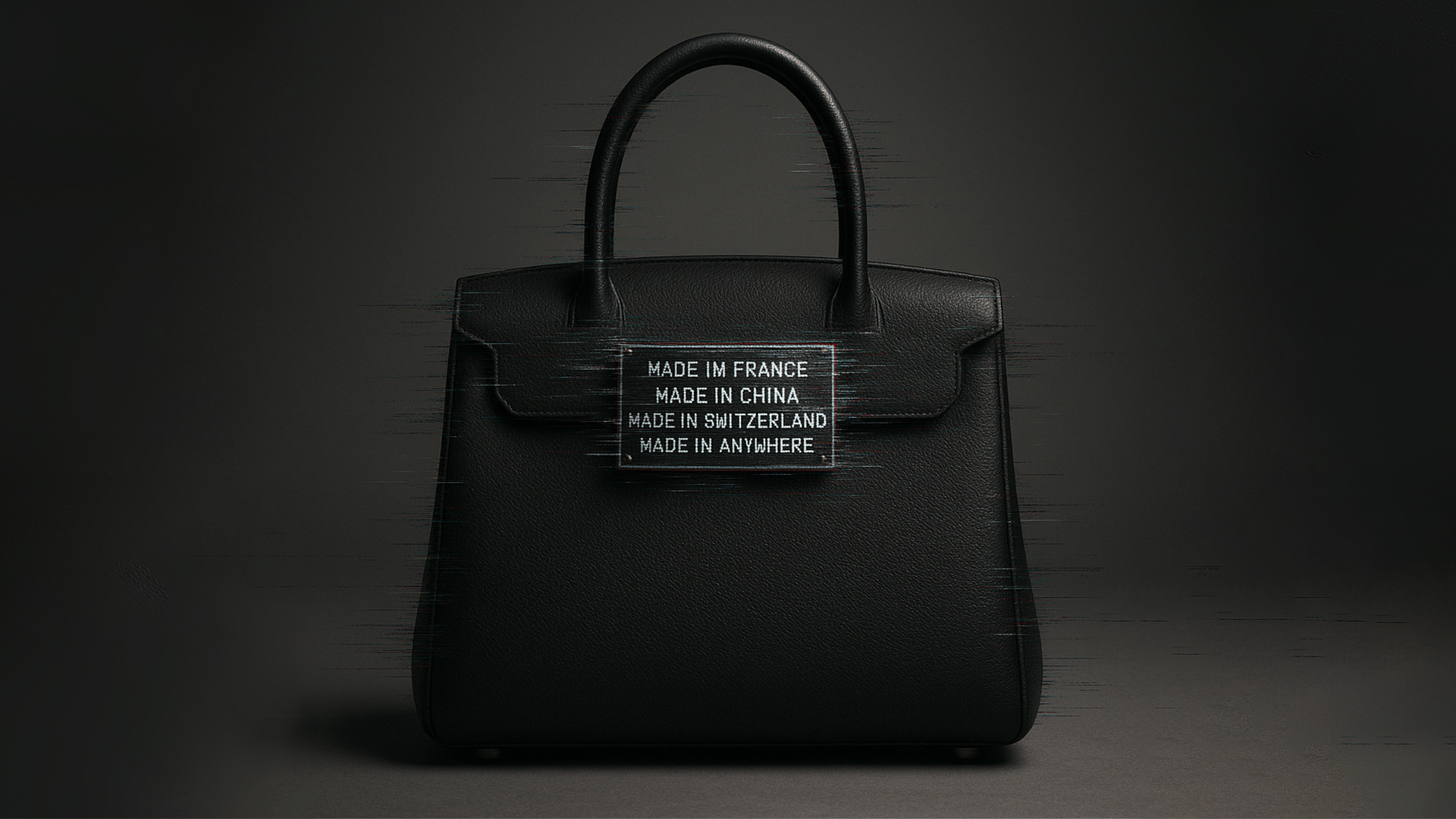
The Death of the Luxury Brand? What the Hermès, Rolex, and Louis Vuitton Controversies Reveal About Brand Trust Today
Luxury has always been built on mystique—a mix of scarcity, craftsmanship, and the promise of belonging to an elite circle. But what happens when that mystique starts to crack?
In recent months, some of the most iconic luxury brands—Hermès, Louis Vuitton, and Rolex among them—have found themselves at the center of viral accusations, lawsuits, and growing consumer skepticism. From Chinese factory claims to American class action lawsuits, the old-world luxury model is being called into question.
The question isn’t whether people still want luxury. It’s whether they still trust it. And in today’s landscape, brand trust is everything.
The Viral Accusations: Luxury Under Fire
Social media has blown the lid off a lot of brand mythology—but few revelations have hit harder than the recent claims circulating around luxury fashion and watches:
- Viral videos from Chinese factory workers claim to produce bags for top-tier fashion houses like Hermès and Louis Vuitton.
- A whistleblower from Swatch Group alleged that components of “Swiss Made” watches are being sourced from China, undermining decades of prestige branding.
- In the U.S., Hermès is facing a class action lawsuit accusing it of operating a “pay-to-play” scheme where customers must buy non-Birkin products in order to be eligible for a Birkin bag.
Public reaction has ranged from outrage to vindication. Even celebrities like Cardi B—who once defended the Birkin—have waded into the discourse, calling out inconsistencies in how exclusivity is marketed and policed.
The Luxury Brands' Response: Silence, Denial, or Deflection?
In true luxury fashion, most brands have chosen silence. That silence, however, is starting to sound like indifference.
In an era where consumers expect transparency, the “say nothing” strategy is increasingly risky. These brands may be betting on their mystique to weather the storm—but mystique doesn’t hold up under scrutiny.
The China Dilemma: Manufacturing, Perception, and Global Reality
Let’s get one thing straight: China is the world’s manufacturing powerhouse. Virtually every global brand relies on Chinese production in some form. But in luxury, perception matters.
Many luxury houses have long implied that their goods are wholly crafted in France, Switzerland, or Italy. Yet the reality is that some materials, components, or even packaging are outsourced to China—often quietly. The legal requirements for labels like “Swiss Made” or “Made in Italy” allow for this kind of blurred line.
And here’s the paradox: if Chinese manufacturers are skilled enough to make indistinguishable luxury products, what exactly are consumers paying a premium for
This isn’t about shaming Chinese production. It’s about honesty. The market is mature enough to handle nuance—but brands must be willing to own it.
When Exclusivity Turns into Manipulation
Scarcity used to drive desirability. Now, it risks breeding resentment.
The class action lawsuit against Hermès alleges that the brand deliberately withholds Birkin bags unless customers first buy other items—effectively gamifying access to luxury. Meanwhile, Rolex’s infamous waitlists have led to inflated secondary market prices and accusations of controlled scarcity.
When brands cross the line from curated exclusivity to engineered frustration, they compromise the very loyalty they rely on.
What’s at Stake: Eroding Brand Trust
The issue isn’t just about where things are made or how many are available. It’s about whether consumers believe in the story they’re being sold.
Luxury brands have traded for years on myth-making. But in the age of transparency, consumers are no longer content with smoke and mirrors. If trust collapses, the perceived value—and pricing power—of these brands could unravel.
In short, luxury without brand trust is just marketing.
The Future of Luxury Branding: What Needs to Change
Recommendations for Premium and Prestige Brands:
- Transparency is the new exclusivity. Be honest about sourcing, pricing, and availability.
- Substance over spectacle. Craftsmanship, not clout, should be at the center of the brand promise.
- Control the narrative with truth. Address controversies directly, or others will do it for you.
- Embrace nuance. Consumers can accept complexity—but not deception.
Maybe Hermès bags aren’t made in Chinese factories. Maybe Rolex doesn’t manipulate its waitlists. But when consumers believe they might, that perception is already a brand risk.
The future of luxury won’t be built on mystique alone. It will belong to brands that are as precise with their integrity as they are with their craftsmanship—and that earn brand trust at every level.
Next Read: Unlocking the Power of Digital Marketing →


